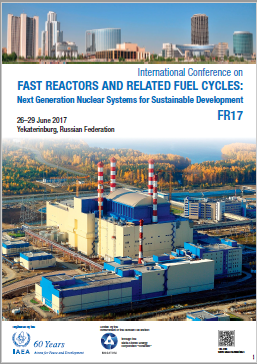Speaker
Mr
Valery Bereznev
(IBRAE)
Description
CORNER and ODETTA codes for neutrons and photons transport based on discrete ordinates using finite differences and finite elements methods have been developed as a part of the new generation codes for the construction and validation of the perspective FBR safety.
Modern CONSYST software is used for the preparation of the macroscopic cross sections. Both eigenvalue (keff) and fixed source problems can be solved, including joint calculations of neutrons and gamma rays. The principal application is solving transport problems with deep penetration. OpenMP technology is applied for parallel computing.
The CORNER code allows calculations in three-dimensional hexagonal and combined geometry (to account for the heterogeneous features of the computational model). Weighted Diamond Difference and nodal schemes are used to approximate the spatial dependence. The calculations have been performed for models of BN-800 and BN-1200 reactors, and for BFS critical assemblies.
ODETTA code uses discontinuous linear finite element method on unstructured tetrahedral meshes, based on the selected CAD model with Salome and Gmsh programs. Space rebalance method and δ-process are used to speed up the inner and outer iterations respectively. Results of code validation against safety experiments ASPIS and EURACOS from SINBAD database and cross-verification on a test model of the reactor BN-1200 are presented.
Country/Int. Organization
Nuclear Safety Institute of the Russian Academy of Sciences, Moscow
Author
Mr
Valery Bereznev
(IBRAE)
Co-authors
Ms
Elena Sychugova
(IBRAE)
Mr
Evgeny Seleznev
(NUCLEAR SAFETY INSTITUTE OF RUSSIAN ACADEMY OF SCIENCES)
Mr
Nikita Grushin
(IBRAE)
Mr
Viсtor Belousov
(IBRAE)

